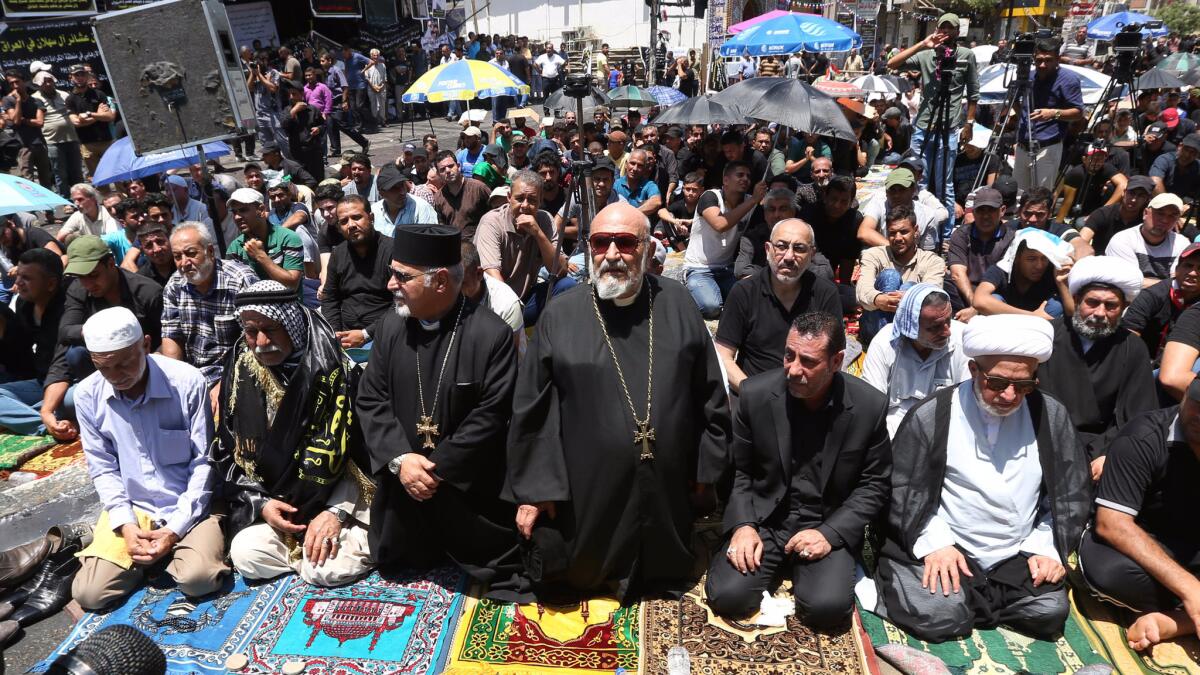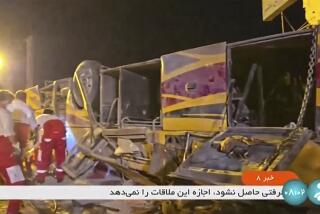Iraqi prime minister accepts interior minister’s resignation after major Baghdad-area attacks

Iraq’s prime minister accepted the resignation of the country’s interior minister on Friday, just hours after he had fired Baghdad’s security chief over unprecedented attacks that have hit in and near the capital this week.
Anger has mounted against Haider Abadi’s government following Sunday’s massive truck bombing in the capital that killed at least 186 people. And late Thursday, an attack at a Shiite shrine north of Baghdad killed 37 people. The Islamic State group has claimed responsibility for both attacks.
Interior Minister Mohammed Salem Ghabban submitted his resignation on Tuesday, but Abadi held off on accepting it until Friday. The prime minister described the attacks as the militants’ response to Iraq’s “great victory in Fallouja, which stunned the world,” according to a statement released by his office.
The former Islamic State stronghold, west of the capital, was retaken in June, after the extremist group had held the city for over two years.
See the most-read stories in World News this hour >>
Despite recent territorial losses in both Iraq and Syria, where the group has established its self-proclaimed caliphate, the attacks in Baghdad and on the Shiite shrine demonstrate its continued ability to launch offensive attacks in Iraqi government-held territory and beyond. In Iraq, Islamic State still holds pockets of territory in the country’s north and west, including the second-largest city of Mosul.
A successor to Ghabban was not immediately named.
The attack Sunday in Baghdad’s central Karada neighborhood, where the suicide bomber detonated his explosives’ truck outside a shopping mall in a street crammed with people preparing for the Muslim holiday of Eid al-Fitr, killing scores, was the deadliest in Iraq since the 2003 U.S.-led invasion. The death toll has been rising as more human remains continue to be recovered from the rubble.
The late-Thursday assault on the Sayyid Mohammed shrine began with mortar fire on the holy site and a nearby market in Balad, 50 miles north of Baghdad.
The suicide bomber first targeted police guarding the shrine’s entrance. That allowed a second bomber to push into the courtyard with nine gunmen who targeted security forces and civilians gathered inside to celebrate the Eid al-Fitr holiday.
A third bomber was killed before he detonated his explosives, police said.
In all, 37 people were killed and 62 wounded, according to police and hospital officials who spoke on condition of anonymity because they were not authorized to talk to the media.
Abadi fired the commander of Baghdad Operations, a statement from his office said earlier Friday. It said other security and intelligence officials also were fired, but it did not identify them.
MORE WORLD NEWS
Obama leaves final NATO summit with work unfinished on both Afghanistan and Russia
Japan’s ruling coalition wins election, opening door to constitutional change
Egypt wants to revive the Israeli-Palestinian peace process
More to Read
Sign up for Essential California
The most important California stories and recommendations in your inbox every morning.
You may occasionally receive promotional content from the Los Angeles Times.









